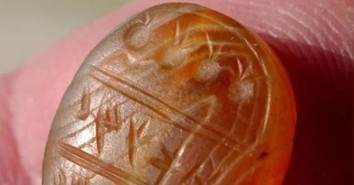American Girl Book Angers Parents, Promotes Transgenderism to 10-Year-Olds

A colorful new American Girl book marketed to girls as young as 10 has sparked a backlash among parents for its promotion of transgenderism and its explanation that some girls who feel like a boy "on the inside" can become a boy.
A Smart Girl's Guide: Body Image Book, which American Girl says is appropriate for children ages 10 and up, supposedly tells readers what "every girl needs to learn to live comfortably in her own skin," according to a publisher description. But it is being widely panned by American Girl fans due to its content. All total, 60 of the 90 reviews on the American Girl website gave the book one out of five stars – the fewest stars a book can receive. (Some fans complained that the company was deleting bad reviews.)
"As a grandmother, I have bought and loved American Girl, BUT no longer will I be buying from this company," one reviewer complained.
"Just let kids be kids," another reviewer wrote. "... I don't think I should be supporting a company who promotes inappropriate books like this."
With colorful, kid-like illustrations, the book tells girls that the "way you show your gender to the world through clothes and behaviors is your gender expression."
"Your gender expression can be feminine, masculine, or somewhere in between – and it might change! Maybe you'll experiment with bright dresses and long, feminine hairstyles," the book says. "Or you might try baggy shorts, plaid shirts, and a buzzed haircut. Your gender expression should make you feel at home in your body."
The book then explores transgenderism.
"While gender expression is what you show on the outside, gender identity is how you feel on the inside – a girl, a boy, or someone who doesn't fit into either category," the book says. "When a baby is born, a doctor looks at the baby's body parts to assign its sex – whether the baby is female or male. Most kids grow up feeling comfortable in the sex the doctor assigned. This kind of person is cisgender. … But for some, that assigned sex doesn't match who they know they are inside. A kid who was assigned as male might know herself to be a girl inside, for example. Someone whose gender is different than the sex they were assigned at birth is transgender. Some people don't feel like a girl or a boy inside – which is totally OK! People in this group are usually called nonbinary and might use a pronoun like they instead of he or she."
The American Girls book also promotes puberty blockers.
"If you haven't gone through puberty yet, the doctor might offer medicine to delay your body's changes, giving you more time to think about your gender identity," the book says.
Bethany Mandel, a columnist for the Deseret News, said the book crossed a line for parents.
"Taking sides in political battles, especially those involving children, their sexuality and their health, is never a wise idea for a brand, but it's becoming especially untenable in the changing political landscape of American parenthood," Mandel wrote. "... [American Girl] has spent decades building trust among a key consumer base. With just a few pages of a paperback book, they have squandered it."
The company, Mandel added, "can stake their position and risk the financial backlash, or they can try to regain some of the trust they've lost."
"In the coming days, the company's response to the outrage will reveal its decision," Mandel wrote. "And then American parents can shop accordingly."
Photo courtesy: ©Getty Images/People Images
Michael Foust has covered the intersection of faith and news for 20 years. His stories have appeared in Baptist Press, Christianity Today, The Christian Post, the Leaf-Chronicle, the Toronto Star and the Knoxville News-Sentinel.
Listen to Michael's Podcast! He is the host of Crosswalk Talk, a podcast where he talks with Christian movie stars, musicians, directors, and more. Hear how famous Christian figures keep their faith a priority in Hollywood and discover the best Christian movies, books, television, and other entertainment. You can find Crosswalk Talk on LifeAudio.com, or subscribe on Apple or Spotify so you never miss an interview that will be sure to encourage your faith.
Originally published December 09, 2022.








